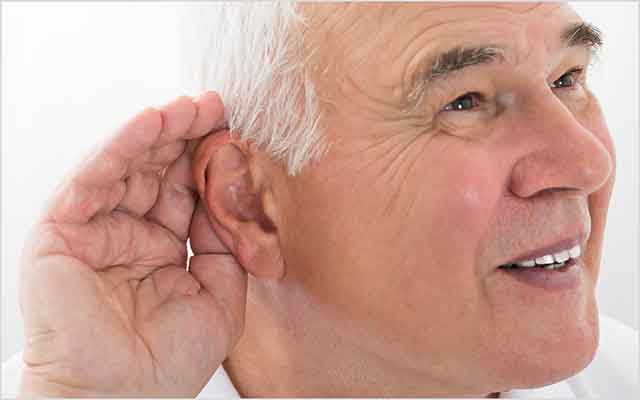Hearing loss is never an easy thing to deal with. But what should you do if you can’t hear out of one ear suddenly? Keep reading. You’ll learn about hearing loss in one ear, what causes it, and the treatments available.
Why can’t I hear out of one ear?
Hearing loss is a funny thing. While most people associate it with the elderly or people who suffer some sort of eardrum trauma, it could actually happen at any point and for a number of reasons. Hearing loss that only affects one ear can happen all of a sudden or gradually and could happen in one ear or the other.
Sudden sensorineural hearing loss (SSNHL), if that’s what it is, often remains unexplained and there are about 66,000 new cases every year in the United States alone. Many cases go unreported or even misdiagnosed. Many people first experience SSNHL by waking up one morning and realizing they can only hear out of one ear. While it might be tempting to write this sudden loss of hearing off as temporary, it’s actually very important that you go see a hearing specialist right away – otherwise, a non-serious bout of hearing loss can turn into something much more damaging and permanent. If the hearing loss is from trauma or an especially loud noise, preventing inflammation will help limit the chances of long-term hearing loss.
What causes hearing loss in one ear
The most common reasons for a sudden bout of hearing loss in one ear are believed to be blockages, damage, medication side effects, or a viral inner ear infection. However, it’s important to note that the cause for sudden hearing loss is unknown in about 90% of all the cases that are diagnosed.
Viral inner ear infections often cause the hearing nerve to swell in the inner ear canal. Unchecked inflammation can cause the nerve to eventually die. That’s why it’s so important to get your ear checked out in the case of SSNHL. Letting it sit and fester can cause permanent damage. Immediate care can help reduce the swelling.
It’s also possible that sudden hearing loss in one ear is the result of a tumor, which would also need to be treated right away.
Fortunately, the other causes of SSNHL are much less serious and easy to treat. Blockages are often caused by compacted earwax, which is pushed down into the ear canal by cotton swabs. A hearing specialist can clear out a bad case of clogged ears. There are also several over-the-counter remedies available for more mild cases, such as ear drops that can unclog your ears.
What to do when you can’t hear in one ear
There are several treatments available for temporary hearing loss that affects one ear. In many cases, rest is the best bet to get your ears back to normal. This is especially true if you experience hearing loss after a night out at a loud concert. Even when it’s obvious that the hearing loss is caused by loud noises, it’s still important to see a hearing specialist. This ensures that there aren’t any underlying issues that could make you more susceptible to hearing loss in the future.
As mentioned above, you can see a hearing specialist to unclog your ears or use over-the-counter treatments. Ear infections, on the other hand, may either clear up by themselves (under a doctor’s supervision) or may need to be treated with antibiotics, depending on if the infection is viral or bacterial.
Some medications can cause hearing loss
Some medications are considered to be ototoxic, which means that they cause hearing loss under certain circumstances. These medications include aspirin, some antibiotics, chemotherapy, and diuretics, to name just a few. Concerned about hearing loss from one or more of these medications? You should consult with your doctor and hearing specialist to discuss any possible alternative medications.
If it turns out that you have permanent hearing loss in one ear, it’s best to get it treated. Uneven hearing loss is taxing on the brain, which can cause headaches. Even mild hearing loss has been associated with cognitive decline. In fact, long-term untreated hearing loss has been linked to dementia, memory issues, anxiety, and depression. It’s also disorienting when you can only hear from one ear. It makes it harder to locate the source of sounds, which increases your risk of accidents.
Thankfully, treating hearing loss is easy. Modern hearing aids are extremely powerful, can amplify conversation while blocking out background noise, and are extremely discreet.



